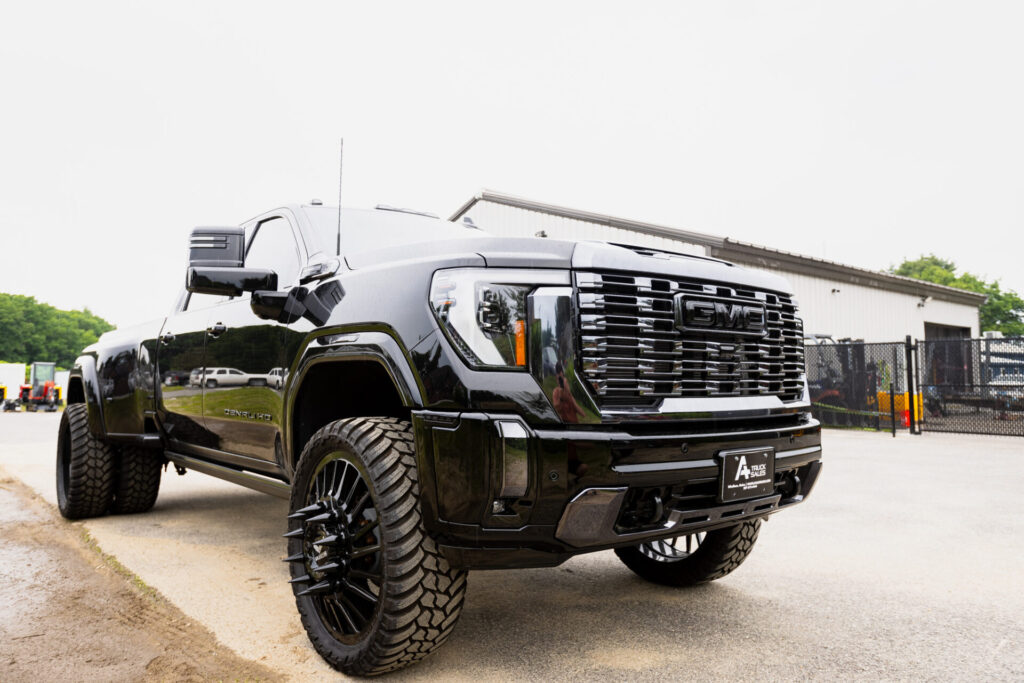If you’ve spent more than one winter in Maine, you know it’s not just cold. It’s brutal. We’re talking about subzero temperatures, relentless snowstorms, and salted roads that eat metal for breakfast. It’s the kind of weather that tests your vehicle’s limits and punishes the unprepared.
Luckily, you don’t have to be one of those folks stuck on the side of Route 1 with a dead battery and frozen toes. With this mechanic-approved checklist, you’ll get your car or truck ready to take on whatever winter decides to throw at it.
Why Maine Winters Are a Beast of Their Own
Subzero Temperatures and Heavy Snowfall
In Maine, it’s not unusual for temperatures to plunge below zero for days. Your engine struggles to start, your tires lose pressure, and fluids thicken, making everything from turning the steering wheel to shifting gears feel like a workout.
Salted Roads and Rust Risks
Salt is great for preventing ice. It’s not so great for your undercarriage. Without proper protection, salt can cause corrosion that leads to serious repair bills. Rust doesn’t wait until spring to strike. It gets to work the minute road crews roll out.
Long Drives in Remote Areas
In places like The County or down east past Ellsworth, cell service can be patchy and gas stations few and far between. Breakdowns in remote areas can quickly become dangerous, especially during a storm.
The Importance of Reliability and Prevention
A Maine winter will expose every weakness in your vehicle. Your battery, tires, brakes, and wipers all get put to the test. Preparing ahead means fewer surprises and more safe miles.
Common Winter Breakdowns and How to Avoid Them
Dead batteries, bald tires, and frozen fluids top the list of preventable winter issues. The goal here is to tackle those problems before they leave you stranded in a snowbank.
The Ultimate Winter Prep Checklist for Maine Drivers
Check and Replace Your Battery
Cold weather significantly reduces battery capacity. If your battery is more than three years old, have it tested. Make sure terminals are clean and connections are tight. Battery failure is the number one cause of winter breakdowns.
Inspect Tires and Consider Winter Upgrades
All-season tires lose grip when temperatures fall below 45 degrees. If you live in rural or high-snowfall areas, winter tires with deeper treads and softer rubber compounds offer better control. Don’t forget to check your tire pressure weekly. It drops with the temperature.
Refill and Replace Fluids
Top off your antifreeze with the proper 50-50 mix. Switch to winter-grade oil if recommended by your vehicle’s manufacturer. Use winter windshield washer fluid that won’t freeze. Keep extra fluid in the trunk just in case.
Inspect and Maintain Your Brakes
You’ll need optimal stopping power on icy roads. Have your brake pads, rotors, and brake lines inspected. Listen for squealing or grinding. Winter is no time to let minor brake issues slide.
Check Wipers and Defrosters
Install winter wiper blades that are better suited for slushy, icy buildup. Make sure your defroster and rear window defogger are working properly too. Visibility is survival when you’re facing whiteout conditions.
Test Your Heater and Defogger Systems
It sounds basic, but don’t wait until the first cold morning to discover your heater doesn’t blow hot air. A faulty heater core or broken thermostat will make winter driving miserable and potentially unsafe.
Pack an Emergency Kit
Keep a blanket, shovel, jumper cables, flashlight, snacks, water, battery pack, and first aid kit in your trunk. If you get stuck or stranded, these basics can be a lifesaver.
Pro Tips from a Maine Mechanic
Undercarriage Protection to Prevent Rust
Before the first snowfall, get your vehicle undercoated with rust protection. Spray-on coatings help repel salt and moisture. Even a DIY application is better than nothing.
Block Heaters and Battery Warmers
A block heater warms the engine block, making cold starts easier. A battery warmer keeps the battery at a functional temperature. These are particularly useful for diesel vehicles or cars parked outside overnight.
Using the Right Oil Viscosity
Oil thickens in cold weather, which can delay startup and reduce engine lubrication. Consult your manual or mechanic about switching to a lower-viscosity oil during winter months.
Keep Your Gas Tank at Least Half Full
This old-school advice still holds. A fuller tank prevents moisture from condensing inside and freezing in the fuel lines. It also ensures you have enough gas if you get stuck and need to keep the heat running.
How Often to Wash Your Car in Winter
Wash your vehicle at least once every two weeks to remove salt buildup, especially around the undercarriage and wheel wells. Use a car wash with underbody spray if possible. Clean vehicles don’t just look better. They last longer.
Driving Smarter When Conditions Get Rough
Slow and Steady Wins the Ice Road
Accelerate and brake gently. Double your following distance. On snow or ice, your tires have about half the grip you’re used to.
Avoid Cruise Control in Slippery Conditions
Cruise control can lead to unexpected acceleration and skids on icy roads. Always drive manually when road conditions are questionable.
How to Safely Recover from a Skid
If your rear wheels skid, steer gently into the skid. Don’t slam the brakes. If you have antilock brakes, apply steady pressure and let the system work.
Parking Tips to Avoid Frozen Brakes and Wipers
Avoid using your parking brake overnight in below-freezing temps unless it’s absolutely necessary. And never leave your wipers up. They can freeze in place or snap when you try to use them.
When to Stay Home Instead of Driving
No matter how prepared you are, some storms are better avoided. If local authorities say stay off the roads, listen. Even the best winter truck cannot outdrive a blizzard.
Final Thoughts from Under the Hood
Don’t Wait for a Breakdown
The cold doesn’t care if you’re on your way to work or taking the kids to school. If something’s on the edge of failure in the fall, it’s likely to give out by mid-January. Take the time now to get ahead of issues.
Why Prevention Saves You More than Repairs
An hour of prep today can save you hundreds of dollars and hours of frustration later. Whether it’s replacing worn tires or checking the battery voltage, a little effort goes a long way.
Local Resources for Winter Vehicle Care
Most Maine towns have trusted local mechanics who know what winter does to cars. Don’t be afraid to ask them to look over your vehicle before the season kicks in.

